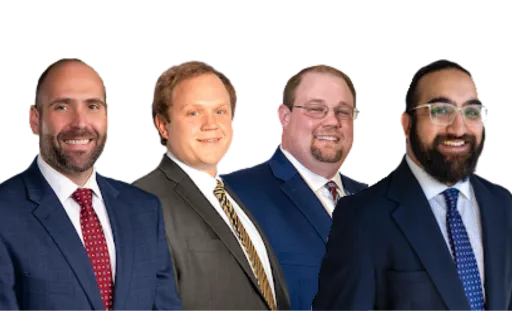South Carolina Burglary Lawyer
Although it is often conflated with similar charges like robbery, burglary is a unique—and uniquely serious—offense under South Carolina state law. Every form of this crime is a felony punishable by a significant number of years in prison. The most severe variant of this offense could potentially even put you in prison for the rest of your life.
Fortunately, help is available from a seasoned South Carolina burglary lawyer throughout every stage of the prosecutorial process. A qualified theft attorney who knows how to handle cases like yours could prove to be an essential ally in your fight to protect your best interests and constitutional rights.
The Basic Elements of a “Burglary” Offense
Under state law, burglary is a distinct offense from other forms of theft, and in fact does not even need to involve the physical taking of anything of value. There are only two core components that prosecutors must prove to convict someone of burglary: entrance into a building without consent, and intent to commit a crime while inside the building in question. Depending on the circumstances, a South Carolina burglary attorney may be able to build a strong defense strategy around disproving one or both of these base elements.
In this context, entering a building without consent can mean entering “any structure, vehicle, watercraft, or aircraft” without permission from the person who lawfully owns or resides in that “building,” remaining inside a building without owner or resident consent, or using false pretenses to gain consent for entry from a building’s lawful owner or resident. Likewise, a crime can be anything from theft to assault to sexual misconduct, although certain offenses associated with burglary may allow for more severe punishments upon conviction.
Degrees of Burglary and Associated Penalties
There are three degree of burglary codified under state law, each of which is a felony offense. South Carolina Code of Laws § 16-11-313 defines the most basic version of burglary—in other words, entry into a building without consent for criminal purposes—as burglary in the third degree, allowing for maximum penalties of five years upon a first conviction and ten years for any subsequent conviction.
According to S.C. Code § 16-11-312, burglary advances to a second-degree offense if the building involved is a “dwelling” that someone normally lives, lodges, and/or sleeps in, or if any of the following circumstances apply to an act of burglary:
- A participant in the act of burglary possesses or brandishes a deadly weapon or instrument
- A participant in the act of burglary physically injures a non-participant
- A participant in the act of burglary has two or more prior convictions for burglary and/or housebreaking
- The act of burglary occurs at night
A second-degree burglary conviction could lead to a maximum punishment of 10 years in prison if the building involved is a dwelling, or a maximum sentence of 15 years with five years not eligible for parole under any other qualifying circumstances (consider “violent”).
Additionally, as per S.C. Code § 16-11-311, burglary in the first degree entails burglary of a dwelling combined with any of the aforementioned aggravating factors. Since this offense is punishable by a life sentence in prison without parole, representation from a skilled lawyer is especially crucial for anyone accused of first-degree burglary in South Carolina.
Get in Touch With a South Carolina Burglary Attorney
Before trying to defend yourself against burglary allegations, you should strongly consider speaking with a legal professional about the best course of action for your case. Law enforcement authorities take this charge very seriously in the Palmetto State and given how severe the consequences of a conviction could be, you may have a prohibitively difficult time effectively protecting your own best interests.
A South Carolina burglary lawyer could discuss the possibilities in your case with you during a confidential consultation. Schedule yours by calling today.




